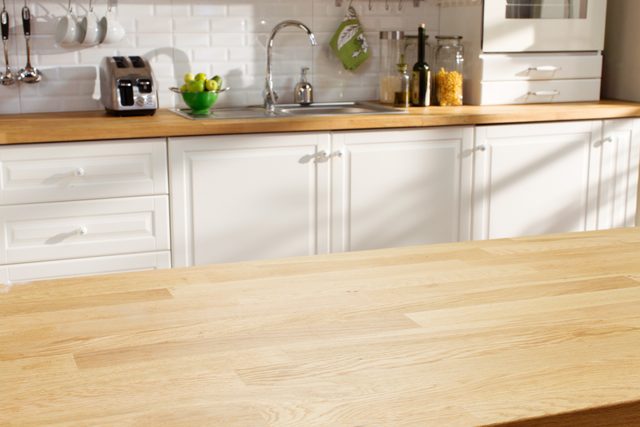Wooden counters add depth and natural flair to your kitchen. Here's how to install butcher block countertops.
Our editors and experts handpick every product we feature. We may earn a commission from your purchases.Learn more.


Wooden counters add depth and natural flair to your kitchen. Here's how to install butcher block countertops.
Our editors and experts handpick every product we feature. We may earn a commission from your purchases.Learn more.
Three Days
Intermediate
$300
Butcher block countertops are a beautiful, durable and affordable option. Most big box home improvement stores sell them, and they're DIYable with a few basic woodworking tools and skills.
I like them for lots of reasons. They're far more affordable than quartz, granite or soapstone. You can finish them in so many ways. It's relatively easily to round the corners or make artistic curves along the front edge with a jigsaw. And they're easily repairable and look great for years.
We chose a countertop project that's seven feet long and 25 inches deep, which we'll stain and coat with a thick epoxy. Here's how it's done: I like them for lots of reasons. They're far more affordable than quartz, granite or soapstone. You can finish them in so many ways. It's relatively easily to round the corners or make artistic curves along the front edge with a jigsaw. And they're easily repairable and look great for years. We chose a countertop project that's seven feet long and 25 inches deep, which we'll stain and coat with a thick epoxy. Here's how it's done.Yes, it is essential to seal butcher block countertops. “Butcher block is easily scratched, and it is porous if not protected properly, so it will show those oil, coffee and wine stains you forgot to wipe up before eating,” says Coates. Seal the wood with a food-safe oil once a month for the first few months; after that, once or twice a year should be sufficient.
Butcher block countertops are sanitary if they receive proper care. They require daily cleaning with mild soap and water and frequent sealing with food-safe oil. “It’s important to use mineral oil as opposed to food oils like coconut oil and vegetable oils,” advises Wood. “Food oils can go rancid and promote bacterial growth on the wood.”